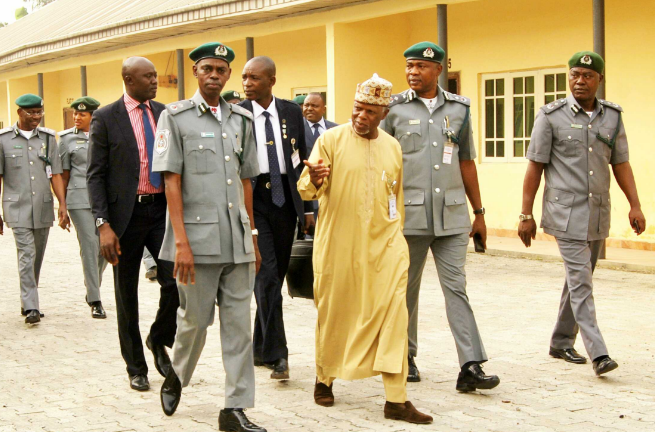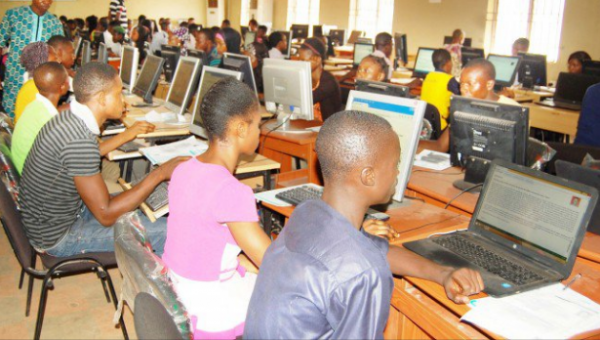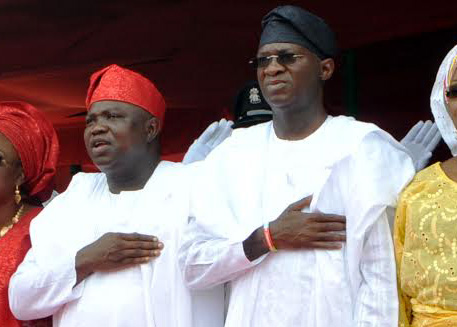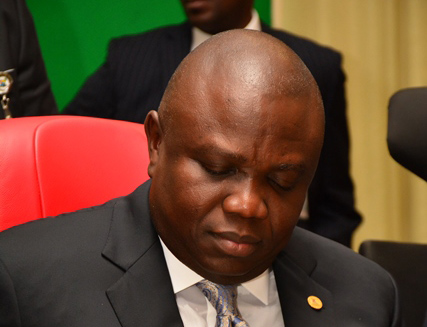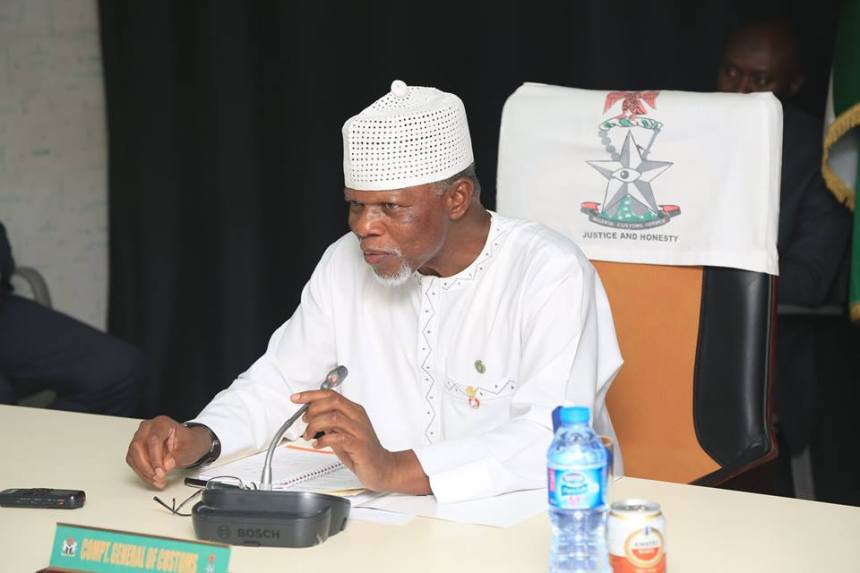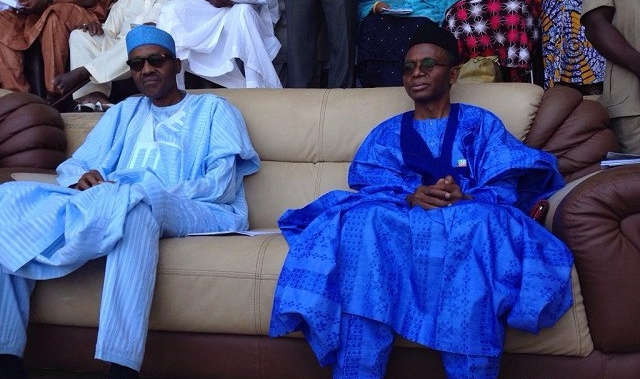In the last two years since Hameed Ali was appointed comptroller general of the Nigeria Customs Service, I do not recall ever seeing him in uniform. But since the retired army colonel is not harming himself or any third party by not wearing uniform, I have gradually reconciled myself to seeing him in civilian dress.
When the senate tried to make an issue of his uniform and he responded by saying he was not appointed to wear uniform, I thought, ‘well, this monk won’t let the hood define him.’
Sadly, in the last one week or so, I’ve been alarmed that the country may not only need to save the monk from the hood, we may need to save the monk from himself as well.
Ali’s honesty and zeal are not in doubt. What is in serious doubt is whether he will not drag hundreds of thousands of vehicle owners and commuters into traffic chaos by insisting on a policy that punishes the public for the incompetence of the customs.
Advertisement
According to Ali, very soon (he fixed April 12 before suspending the deadline under pressure from the senate), all vehicle owners will have to add one more layer of documentation to the already crushing sack of papers they log around whenever they’re driving daily.
Ali says that drivers, especially on interstate roads, must also carry car-duty payment receipt even if their cars were bought from Henry Ford, or risk seizure by customs.
As things are today, you need six different sets of documents to drive on Nigerian roads: a valid driver’s licence, vehicle licence, insurance certificate, certificate of road worthiness, BCMR (police report), and a tinted glass permit, even if your car was fitted with the tinted glass from the factory.
Advertisement
On a good day, this pile of documents should guarantee relatively hassle free commute.
But it depends. It depends on which law enforcement officer you meet along your way – whether it’s the police, state traffic officer/vehicle inspector, a road safety corps officer, a soldier, combined highway patrol team, or in fact, a customs officer.
Show me a driver who has a complete set of valid documents and I’ll show you an officer who can find the crime. If you don’t know this then you have never been a driver on a Nigerian road.
It is estimated that the government loses N250billion yearly in duties and levies on imported vehicles. Importers pay as little as possible to get the vehicles in and share the rest between the government and customs officers. Imagine the difference that that money will make to the treasury and to the improvement of services within the customs itself.
Advertisement
Ali is right to feel outraged by the massive loss of revenue caused by non-payment and underpayment of duties. But he should direct his outrage at his own men, who are probably the biggest aiders and abettors of the fraud.
I’ve met a number of decent customs men and women but car dealers will also tell you that there are just as many officers and rank-and-file who work part time for the customs and full time for car smugglers. They know all the illegal routes – on land, sea and paper. They are more than happy to show you how to evade payment or underpay, if the price is right.
Imported vehicles don’t land on our roads from space. They come in through airports, seaports and land borders manned by customs officers who must be having a good laugh at Ali’s naivety and thanking him for extending their tollgates inwards.
Whenever the enforcement starts, it’s going to be more shakedowns for drivers and more money lining the pockets of customs officers at the different checkpoints. Government treasury will still be the worse for it.
Advertisement
If Ali is truly serious about fixing the broken duty payment system, he should start with his men. He should also remove the bottlenecks at the ports, cut the payment process – currently about eight from valuation (where the fraud really happens) to final clearance – and encourage whistleblowers.
Ali also needs to find out how and why it is possible to get vehicle licence and plate number without paying duty.
Advertisement
In Ghana, you cannot register a vehicle without physically taking it to the nearest licensing office. That’s where all the agencies involved, including the customs, vet vehicles before registration. Ghana may not be a particularly accurate example, because of its size, but we don’t need to reinvent the wheel to fix the problem.
Why is it not possible, for example, to attach customs officers to licensing offices or to make proof of duty payment a precondition for registration and licensing? Why compound our travel misery by insisting that we dig up proof of duty payment for vehicles bought many years ago, when the net benefit will only go to customs men at the checkpoint?
Advertisement
We’ve been told that it’s actually not a new law; that existing legislation empowers the customs to chase drivers around for proof of duty payment.
Well, the only reason why we have to be reminded that it’s not a new law – and it’s taking so much fuss for us to even notice – is because it has collapsed under the weight of its own obsolescence. We should leave it in its silent grave.
Advertisement
A country with at least six data collection agencies – National Identity Management Commission, the National Population Commission, the Independent National Electoral Commission, the Federal Road Safety Commission, the Federal Inland Revenue Service and the National Bureau pf Statistics – which still has to chase drivers into rat holes to pay car duties, has a serious problem.
If Ali refuses to wear uniform, he’s in good company, but he does not have to insult the senate to make his point. The first four chief executives of the customs (then called Department of Customs and Excise), between 1964 and 1981, didn’t wear uniforms.
But as I’m sure Ali himself knows, they didn’t make a fetish of closing the stable door after the horse has bolted. Fix the leaking ports – making the most of technology – and the money will come.
Ishiekwene is the MD/Editor-In-Chief of The Interview magazine and board member of the Paris-based Global Editors Network.
Add a comment

